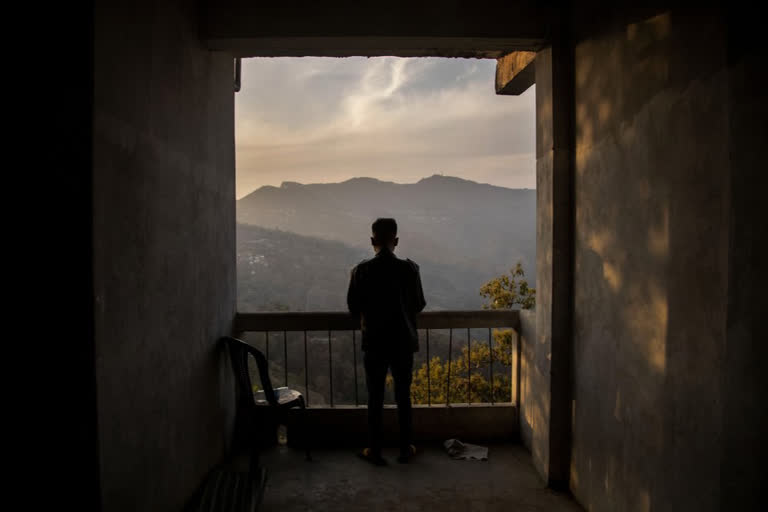Mizoram: A group of Myanmar policemen recounted their escape to India after defying the Myanmar army’s orders to shoot people who oppose the Feb. 1 coup in the southeast Asian country. While speaking, they raised a three-finger salute — a symbol of resistance to Myanmar’s military rulers.
“We cannot hurt our people, that’s why we came to Mizoram,” said one of the policemen, who hails from the northwestern town of Tedim. Mizoram is a state in India’s northeast and shares a border with Bangladesh and Myanmar.
Read:| Ex-Myanmar military personnel recounts horrors of junta after seeking refuge in India
After the army coup, the policemen were ordered to “shoot people and not just the people, we were told to shoot our own family if they are not on the side of the army,” he said. The Associated Press has not been able to independently verify these claims.
Back in Myanmar, the three-finger salute, which traces its origins to the Hunger Games books and movies by Suzanne Collins, is being used by youth protesters at massive anti-army demonstrations.
Meanwhile, K. Vanlalvena, a lawmaker from Mizoram state, urged the Indian government not to deport refugees from Myanmar until the return of normalcy there. The lawmaker belongs to the Mizo National Front, an ally of India’s governing Bharatiya Janata Party.
Those who escaped spending their time watching local television and doing daily chores. Some have carried mobile phones and are trying to connect to families they were forced to leave behind. At night, all of them sleep on mattresses on the floor of a single room.
One of them told the AP that they were under the command of Myanmar’s army.
Read:| Suu Kyi payments claimed as Myanmar junta raises pressure
“We are all policemen working under the Myanmar government. We left our family in Myanmar. We do not know what is happening to our family, but they will face a lot of problems from the army. We came to Mizoram for shelter, we will die if we go back there,” he said.
“We cannot reach our parents due to telecommunication problems, but what we heard is they are very scared to go out of their homes ... I’m hoping that one day we will meet again,” he added.
Earlier this month, Myanmar asked India to return the police officers who crossed the border. India shares a 1,643-kilometer (1,020-mile) border with Myanmar and is home to thousands of refugees from Myanmar in different states.
Last week, Ramliana, president of a Village Council in Mizoram state, a community-based body, said 116 Myanmar nationals crossed the Tiau River and reached Farkawn Village through a stretch where India’s paramilitary Assam Rifles personnel were not present. He uses one name.
India’s state and federal government officials haven’t given an exact number of people from Myanmar who have crossed over to India after the coup.
India’s Home Ministry said the states were not authorized to accord refugee status to anyone entering India from Myanmar, as India is not a signatory to the U.N. Refugee Convention of 1951 or its 1967 Protocol.
Read:| Myanmar protesters don't relent in face of deadly crackdown
Myanmar has been ruled by the military for most of its history since gaining independence from Britain in 1948. A gradual move toward democracy in the past decade allowed Aung San Suu Kyi to lead a civilian government beginning in 2016, although the country’s generals retained substantial power under a military-drafted constitution.
Her party won last November’s election by a landslide, but the military stepped in before Parliament was to convene on Feb. 1, detained Suu Kyi and other government officials and instituted a one-year state of emergency. It contends the vote was tainted by fraud and plans to reinvestigate those allegations before a new election is held.
Reports on Friday said authorities in Myanmar have arrested a spokesman for ousted leader Aung San Suu Kyi’s political party as they intensified efforts to choke off the spread of information about growing protests against last month’s military takeover. Despite a crackdown that has killed more than 200 demonstrators so far, protesters are back in the streets Friday morning in several cities and towns.
AP



